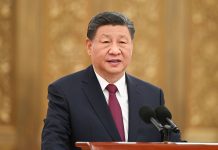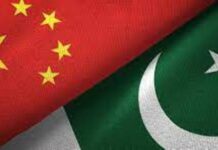URUMQI: The first time An Ayue, a renowned Beijing-based surgeon, went to Xinjiang Uygur Autonomous Region, northwest China, was in 1985, on a joint training program. Organized by the China Academy of Chinese Medical Sciences (CACMS) and the regional government, the program brought medical experts to the region to improve the capacity of the local hospitals and doctors.
An was assigned to train three doctors in proctology and give lectures in different hospitals. He remembers the paucity of equipment he saw at that time. “I had only a pair of scissors and a pair of forceps. Even a minor illness was difficult to treat,” he said.
When he went to the city of Turpan in east Xinjiang from regional capital Urumqi by train, it took a whole day though the distance was just about 150 km. Today, with better connectivity, the journey takes only one hour.
Although An is a colon and rectal surgeon, during his Xinjiang stay, the locals would come to him with all kinds of health problems, thinking because he came from the capital he was a wizard who could cure everything.
Shortage of professionals:
“There was a shortage of medicines and doctors everywhere in Xinjiang and a shortage of medical facilities,” An said.
The Xinjiang authorities later launched a partnership program with their doctors going to Beijing for further training. After An returned to Beijing, his hospital partnered with Xinjiang’s regional health department from 1988 to 1989 to train doctors from Turpan and another area.
“The doctors [from Xinjiang] really worked hard in Beijing,” An said. Besides their medical training, the doctors, who were from ethnic minority groups and could not speak standard Chinese well or at all, also learned the common language. Within three months, they could speak it fluently.
– The Daily Mail-Beijing Review News exchange item





